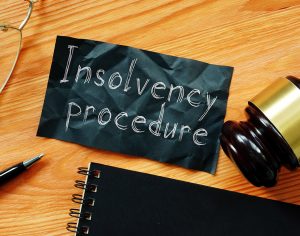Fiona Boswell, a partner with law firm Knights PLC, examines a recent High Court judgement after a business agreement between franchisor and franchisee didn’t exactly go to plan.
Earlier this month, the High Court made an interesting judgement in the case of a long-standing franchisor, and one of his franchisees, who sought to terminate the franchise agreement approximately 16 months after signing it. The franchisee told the franchisor early in 2020 that he was required to self-isolate because of his son’s vulnerable health condition.
This is the case involving Dwyer (UK Franchising) Ltd v Fredbar Ltd, which led to the High Court making a judgement that the agreement’s ’12-month restraint of trade covenant was unreasonable’.
Background information
Dwyer is the franchisor of Drain Doctor, a plumbing and drain repair services company with more than 60 territories across the UK. In October 2018, Fredbar Limited entered into an initial 10-year franchise agreement, in which Mr Bartlett was name as the guarantor. Mr Bartlett ran the franchise business on his own, with Dwyer Ltd granting Fredbar the exclusive rights to trade within nine specific postcode areas in Cardiff.
Mr Bartlett had no prior experience of plumbing or drainage work, and had never previously been a company director. The franchise was Mr Bartlett’s sole source of income, having left his previous employment to start the franchise business.
According to official court documents, Mr Bartlett earned a lower financial turnover than expected during his first year in business. Then along came Covid-19 with Mr Bartlett keen to suspend the Agreement under the ‘force majeure provision,’ because of his need to self-isolate.
Dwyer argued that this provision did not apply in this particular case, as Drain Doctor was a key worker service. However, the franchisor made an offer to Mr Bartlett which stipulated that Fredbar did not need to pay the relevant franchise fees while he was self-isolating.
But the franchisor also demanded that if Fredbar continued to trade, the company would still need to pay the fees as agreed, otherwise the contract would be terminated. After various conversations, Fredbar ultimately accepted this offer. Dwyer then claimed that during this period of suspension, they discovered evidence that Mr Bartlett was trading as Daily Drains, rather than Drain Doctor.
Dwyer then wrote to Mr Bartlett recording its understanding that Fredbar would not now be resuming trading at the agreed date. To which Mr Bartlett responded by email saying he was now terminating the Agreement and that Fredbar was no longer intending to be bound by its terms. Dwyer, in response, gave Mr Bartlett two opportunities to reconsider this position. However, Dwyer then terminated the Agreement by letter in August 2020.
Following this termination letter, Dwyer brought a claim for damages against Fredbar. Dwyer believed Fredbar had breached the Agreement, by claiming to terminate it by email and not accepting it was bound by its terms.
Dwyer also requested that Fredbar and Mr Bartlett should not engage in any business which was similar to, or a competitor of, Drain Doctor. And they wanted this to cover nine Cardiff post code areas, plus a five-mile radius beyond each territory, and to be enforced for 12 months.
The court’s verdict
The question that needed to be answered was whether Fredbar‘s repudiatory breach had given Dwyer grounds to terminate and recover damages? With regards to the repudiatory breach, the judge found that Dwyer itself had breached the Agreement by failing to comply properly with the ‘force majeure clause.’ However, the Agreement was affirmed through Mr Bartlett’s acceptance of Dwyer‘s offer when Mr Bartlett decided to self-isolate.
Fredbar established that Dwyer had misused marketing and promotional funds, which amounted to a repudiatory breach. Yet the judge accepted that the Agreement was rightly terminated by Dwyer, as a result of Fredbar‘s repudiatory breach when the franchisee decided it was no longer bound by its terms.
Were the Restrictive Covenants enforceable?
Ultimately no: The judge said the covenant preventing Fredbar from being engaged in any plumbing or drainage business, within the Cardiff region, was unenforceable. He said Fredbar could not be prevented from acting as a sub-contractor, and that Mr Bartlett could not be denied the opportunity of being employed in the future by a plumbing or drainage company.
The court considered that, by accepting Dwyer‘s argument, it would seriously impact Mr Bartlett, increasing the risk of him becoming unemployed and facing potential mortgage possession proceedings. The judge deemed that the covenant preventing Mr Bartlett from working within a five-mile radius of his original Drain Doctor territories was considered unreasonable, as Fredbar had not previously provided any services within it.
Other reasons why the court considered the covenants as being unenforceable:
• It would be wrong to draw a distinction between Fredbar and Mr Bartlett. That’s because Fredbar‘s business would remain, in effect, a service company for Mr Bartlett.
• The covenants failed to distinguish between terminations at any early stage of the franchise (in term), or termination towards the end of a period (post term).
• Although Fredbar would certainly gain knowledge from Dwyer, with regards to its business methods, there were no trade secrets to be protected by these covenants. If there had been, this could have been better addressed by more specific provisions within the Agreement, such as acting for former customers.
• There was no reciprocity agreement to be applied, should Dwyer have committed a repudiatory breach.
Implications
This case highlights that the enforceability of post-termination covenants in franchise agreements depend on a variety of factors. For example: While covenants apply for 12 months following termination of an agreement, in order to protect a franchisor in some circumstances, it is not necessarily reasonable to protect a franchisor in different circumstances or ‘in term’.
This heralds the end of franchisors’ confidence in the enforcement of its covenants provided that a 12-month restriction applies. This applies particularly in the nuanced and unusual circumstances of this situation occurring during a pandemic. It serves to demonstrate the reluctance of the courts to see the relationship, between franchisee and franchisor, as one of equal bargaining power. Thus the court went to great lengths to balance what it deems as being fundamentally unfair for the inexperienced operator.
It also flags up the importance of ensuring that such covenants are drafted with narrow perimeters, and reviewed regularly, to ensure enforceability. It highlights the high bar that applies when seeking injunctive relief that ultimately prejudices the interests of others, as opposed to monetary relief in the form of damages. I expect an appeal will follow.




































